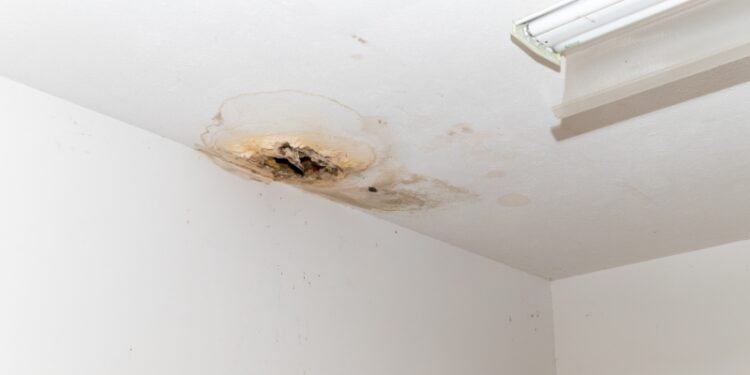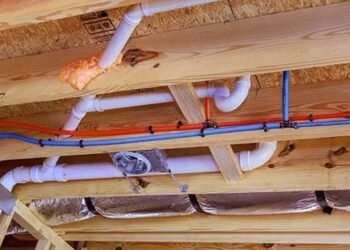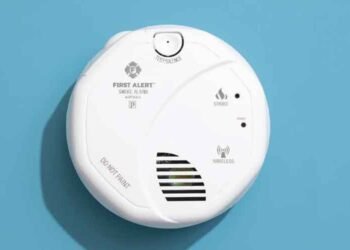Cut costs and enhance sustainability with five strategies to improve water use and prevent leaks in commercial properties. Find out how!
Water management is a critical aspect of maintaining commercial properties. Efficient water use not only helps save on utility bills but also plays an important role in sustainable property management. Moreover, preventing leaks can mitigate potential water damage, which otherwise could lead to expensive restoration efforts. In this post, we’ll explore five actionable strategies that commercial property owners can implement to improve water use and prevent leaks.
Install Low-Flow Fixtures
One of the simplest yet highly effective strategies to reduce water consumption is installing low-flow fixtures throughout your property. These fixtures are designed to use significantly less water than traditional models without sacrificing performance.
Low-flow showerheads can drastically cut down water usage, as modern models provide excellent water pressure while using much less water per minute. For example, a traditional showerhead might use 5 gallons per minute (GPM), whereas a low-flow showerhead uses only 2 GPM or even less.
Toilets and faucets contribute significantly to water waste. Replacing old toilets with low-flow models can save water, using 1.6 gallons per flush compared to 3.5 gallons in older ones. Installing low-flow faucet aerators in busy restrooms also reduces water use without affecting pressure, cutting overall consumption.
Implement Smart Technologies
The advent of smart technologies offers property owners advanced tools to manage water use better and prevent leaks. Here are some of the best smart technologies to consider:
Leak Detection Systems
Leak detection systems can be installed in various parts of the plumbing system to monitor for leaks. These systems alert property managers immediately when a leak is detected, allowing for quick action to minimize water loss and prevent extensive water damage restoration efforts.
Smart Meters
Smart water meters provide real-time data on water use, enabling property owners to identify unusual consumption patterns that could indicate a leak. These meters can also help in tracking water use trends, making it easier to set and achieve conservation goals.
Automatic Shut-Off Valves
Automatic shut-off valves can be installed to cut off the water supply automatically in the event of a detected leak. This technology is particularly useful in preventing severe water damage, as it stops the flow of water until the issue can be resolved.
Conduct Regular Maintenance
Regular maintenance and inspections are essential for keeping your plumbing systems in good working order. Neglecting plumbing maintenance can turn minor leaks into major problems, requiring extensive and costly repairs.
Make it a priority to schedule routine inspections of all plumbing systems, including pipes, valves, and fixtures. Regular inspections can identify potential issues before they turn into significant problems.
Water heaters also need regular inspection and maintenance. Sediment buildup can reduce efficiency and cause leaks. Flushing the water heater regularly can enhance its efficiency and longevity.
Promote Water Conservation Awareness
Educating tenants and staff about water conservation practices is an effective strategy for reducing water use. Awareness campaigns can promote responsible water use throughout the property by providing educational materials like flyers, posters, and emails that highlight the importance of water conservation and offer practical tips.
Hosting workshops and training sessions can also be an engaging way to educate tenants and staff about water conservation techniques. These sessions can cover topics such as reporting leaks, the benefits of low-flow fixtures, and best practices for water use.
Implementing incentive programs can further encourage water-saving behaviors. For example, offering rewards for tenants who consistently follow water-saving practices or achieve specific water use reduction goals can motivate more responsible water use.
Consider Alternative Water Sources
Exploring alternative water sources can significantly contribute to more sustainable water management practices. These sources not only help to conserve potable water but also ensure a reliable water supply for non-potable needs.
- Rainwater Harvesting: Collecting and storing rainwater for use in landscaping, irrigation, and toilet flushing—such as for homes utilizing professional toilet repair and installation services in Murray, Utah—can greatly reduce reliance on municipal water supplies.
- Greywater Systems: Reusing wastewater from sinks, showers, and laundry for irrigation and other non-potable uses helps in lowering water consumption.
- Reclaimed Water: Utilizing treated wastewater for activities such as cooling tower operation and landscape irrigation is an effective way of conserving potable water.
Conclusion
Improving water use and preventing leaks in commercial properties benefits both the environment and operational costs. By adopting these five strategies—installing low-flow fixtures, using smart technologies, conducting regular maintenance, promoting water conservation awareness, and considering alternative water sources—property owners can save water and reduce the risk of costly water damage.
Proactive water management enhances your property’s efficiency and sustainability, positioning you as a responsible owner. Start implementing these strategies today and see your efforts pay off in savings and sustainability.












